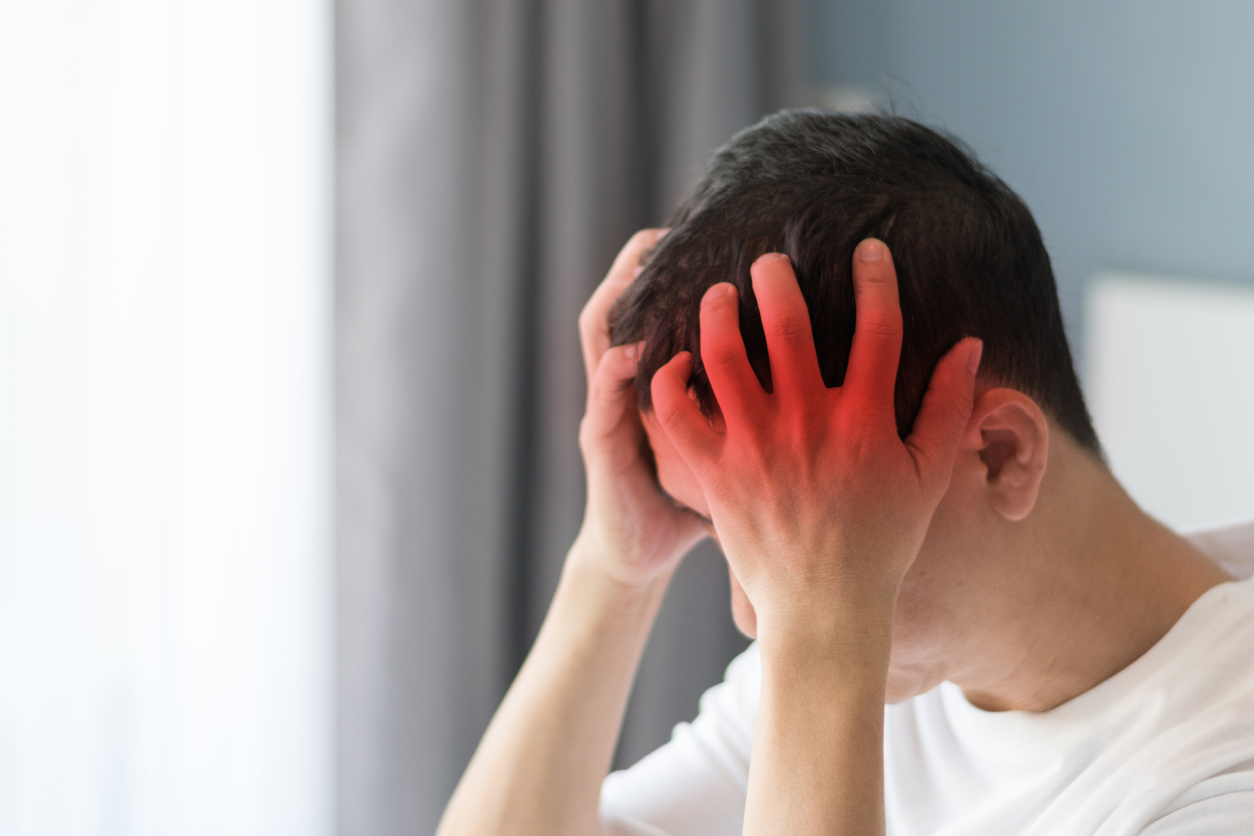Mark Roman | November 22, 2021 | Brain Injuries

As the phrase suggests, delayed concussion symptoms appear a few days or weeks after a concussion. These symptoms often affect higher brain functions, including cognition, memory, and emotions.
Delayed concussion symptoms can signify a permanent brain injury. It may also suggest that you have other brain injuries in addition to your concussion.
Here is some information about delayed concussion symptoms and what they might mean.
How Concussions Happen
Your brain sits inside a viscous fluid called cerebrospinal fluid (CSF). The CSF surrounds the brain and cushions it from hitting the inside of your skull.
Most of the time, the CSF prevents brain injuries. Its viscosity causes the brain to move very slowly inside your skull when you move your head.
But if your head accelerates or decelerates quickly like in a car accident, the pressure in the CSF can damage brain tissue. Pressure in front of the brain increases, and pressure behind the brain drops. This pressure differential can damage or even rupture brain cells and blood vessels.
This pressure damage causes some of the concussion symptoms. But additional symptoms result from inflammation in the brain.
Inflammation is the body’s natural response to cell damage. The body rushes blood and immune cells to the area to fight infection and rebuild damaged cells.
But this accumulation of fluid can cause the area to:
- Increase in temperature
- Swell
The brain usually experiences mild but widespread inflammation after a concussion. “Mild” refers to the fact that the inflammation usually does not cause death. But the inflammation usually covers a wide area of the brain affected by the pressure wave.
The widespread nature of the inflammation produces symptoms that have an unpredictable nature, onset, and duration.
Symptoms of a Concussion
Concussion symptoms include physical, cognitive, and emotional effects, such as:
- Headaches
- Dizziness
- Nausea
- Drowsiness
- Confusion
- Loss of consciousness
- Blurred vision
- Ringing in the ears
With a severe concussion, the patient usually loses consciousness. The patient might only move or open their eyes in response to stimulus or pain. They might not answer questions or give coherent responses.
With a moderate concussion, the patient usually does not lose consciousness. The patient can spontaneously open their eyes and move on command. The patient gives coherent or mildly confused answers to questions.
With a mild concussion, the patient does not lose consciousness. The patient retains their ability to open their eyes, move, and answer questions.
Delayed Concussion Symptoms
Concussions symptoms do not always appear immediately. After a concussion, the physical pain and emotional stress of the injury could cause you to overlook some concussion symptoms. You might “take it easy” after a concussion and only notice certain symptoms after returning to your normal schedule.
The most common reason for delayed concussion symptoms is that inflammation takes time to develop. Just as your sprained ankle might continue to swell after a slip and fall accident, your brain might continue to swell after a concussion.
This swelling can cause pressure on the brain. The pressure can disrupt nerve signals traveling through your brain. It can also squeeze blood vessels, depriving some areas of your brain of oxygen.
Delayed concussion symptoms can include symptoms such as:
- Amnesia
- Sleep disorders
- Emotional outbursts
- Aggravation
- Slurred speech
- Difficulty concentrating
- Seizures
Unfortunately, like many injuries, the inflammation and pain associated with a concussion will often get worse before it gets better. Delayed concussion symptoms result from this inflammatory response.
Additional Brain Damage
Although a delayed onset of symptoms occurs often, you should not ignore it. In some cases, delayed symptoms can happen when you suffer an additional brain injury on top of your concussion. It can also mean that your brain injury was more serious than initially diagnosed.
You should consult a doctor if you have any delayed concussion symptoms. This will not only help you manage or treat your injury, but it will also create the records you need to be able to seek compensation for your injury.
Contact the Clearwater Brain Injury Law Firm of Roman Austin Personal Injury Lawyers for Help Today
For more information, please contact the legal team of Roman Austin Personal Injury Lawyers for a free initial consultation with a brain injury lawyer in Clearwater. We have four convenient locations in Florida: Clearwater, New Port Richey, and Tampa.
We serve throughout Pinellas County, Hillsborough County, Pasco County, and its surrounding areas:
Roman Austin Personal Injury Lawyers – Clearwater Office
1811 N. Belcher Road, Suite I-1
Clearwater, FL 33765
(727) 787-2500
Roman Austin Personal Injury Lawyers – Congress Ave Office
2360 Congress Avenue
Clearwater, FL 33763
(727) 591-5610
Roman Austin Personal Injury Lawyers – Tampa Office
6601 Memorial Hwy Suite 202
Tampa, FL 33615
(813) 686-7588
Roman Austin Personal Injury Lawyers – New Port Richey Office
2515 Seven Springs Blvd.
New Port Richey, FL, 34655
(727) 815-8442
